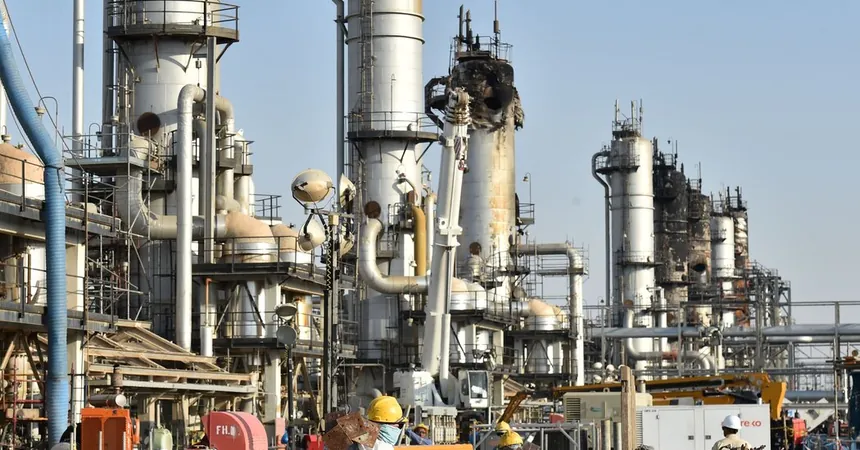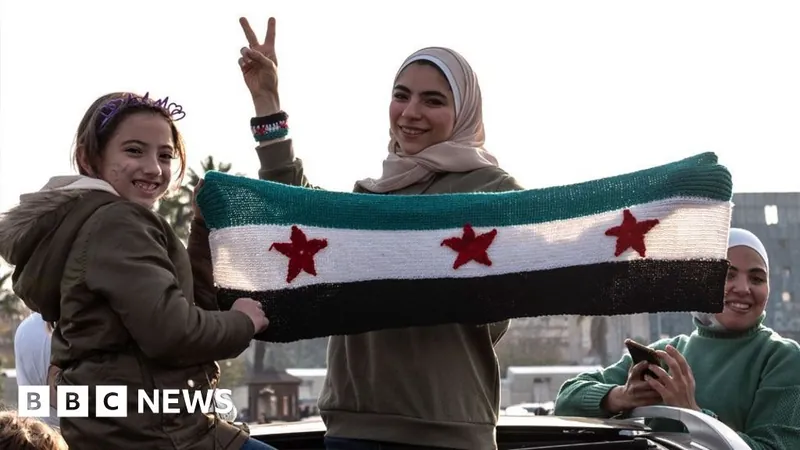
Saudi Arabia's Standoff with Global Leaders Over Plastic Pollution Treaty
2024-11-30
Author: Ken Lee
Saudi Arabia's Role in Climate Negotiations
In a significant showdown at global climate negotiations, Saudi Arabia, the world's leading oil exporter, has emerged as a key player in efforts to resist the establishment of a United Nations treaty aimed at combating plastic pollution. This controversial stance comes on the heels of recent accusations labeling the kingdom as a 'wrecking ball' threatening the integrity of international climate talks.
Negotiations in Busan
As more than 170 nations gather in Busan, South Korea, to negotiate the terms of a global plastic treaty, Saudi Arabia, alongside Russia and other oil-producing countries, is advocating against measures that impose limitations on plastic production. The proposed treaty seeks to address the alarming rise in plastic waste, with Saudi officials arguing that curtailing supply merely punishes industries without tackling the root causes of plastic pollution.
Closed-Door Negotiations
During closed-door negotiations, Saudi delegates were observed attempting to remove key sections from the treaty discussions, particularly those related to financial responsibilities for implementing the agreement. They expressed concerns that these measures could hinder economic growth, further complicating the discussions which have already faced procedural delays due to demands for unanimous decision-making.
Public Criticism and Urgency
The slow pace of negotiations has prompted public criticism from delegates such as José Ramón Reyes López of the Dominican Republic, who called out the tactics being employed to stall progress. Colombian Environment Vice Minister Mauricio Cabrera Leal also voiced apprehension about the potential derailment of constructive agreements due to ongoing delays attributed to certain parties, with an emphasis on the need for urgency.
Kuwait's Standpoint
Kuwaiti delegate Salman Alajmi urged for recognition of their commitment to fostering an ambitious plastic treaty, asserting that their group was being unfairly labeled as obstructive. Meanwhile, Saudi delegate Abdulrahman Al Gwaiz cautioned against hastily concluding discussions for the sake of time, insisting on the importance of building a thorough and durable agreement.
Vision 2030 and Environmental Concerns
The urgency surrounding these discussions is amplified by Saudi Arabia's Vision 2030—a strategic initiative aimed at diversifying the kingdom's economy beyond oil reliance. With petrochemicals as a critical focus, the nation grapples with increasing environmental regulations and public scrutiny over its chemical and plastic industry practices.
Global Coalition for Action
Despite intense lobbying from fossil fuel interests, a formidable coalition of over 100 nations has coalesced to push for significant reductions in plastic production. The proposal includes a global target to slash primary plastic polymer output, with supporters emphasizing the dire situation: nearly half a billion tons of plastic are produced each year, and only about 9% of that is recycled. As alarming statistics indicate, one garbage truck's worth of plastic waste flows into the ocean every minute.
Calls for Collective Action
Leading voices in the coalition, like Panama's Juan Carlos Monterrey, have called on countries that have not yet taken a firm position to join the collective effort toward an effective agreement. The movement has garnered the attention of not only developing nations, notably Rwanda—which pioneered a ban on single-use plastics in 2008—but also fossil fuel producers like Canada and Norway.
The Stakes Ahead
As the clock ticks down on negotiations set to conclude soon, the outcome remains uncertain. Will Saudi Arabia's resistance prevail, or will the collective will of the global community pave the way for a landmark treaty to combat plastic pollution? The stakes could not be higher, as the future of the planet hangs in the balance. Stay tuned for what happens next in this critical battle against plastic waste!

 Brasil (PT)
Brasil (PT)
 Canada (EN)
Canada (EN)
 Chile (ES)
Chile (ES)
 España (ES)
España (ES)
 France (FR)
France (FR)
 Hong Kong (EN)
Hong Kong (EN)
 Italia (IT)
Italia (IT)
 日本 (JA)
日本 (JA)
 Magyarország (HU)
Magyarország (HU)
 Norge (NO)
Norge (NO)
 Polska (PL)
Polska (PL)
 Schweiz (DE)
Schweiz (DE)
 Singapore (EN)
Singapore (EN)
 Sverige (SV)
Sverige (SV)
 Suomi (FI)
Suomi (FI)
 Türkiye (TR)
Türkiye (TR)